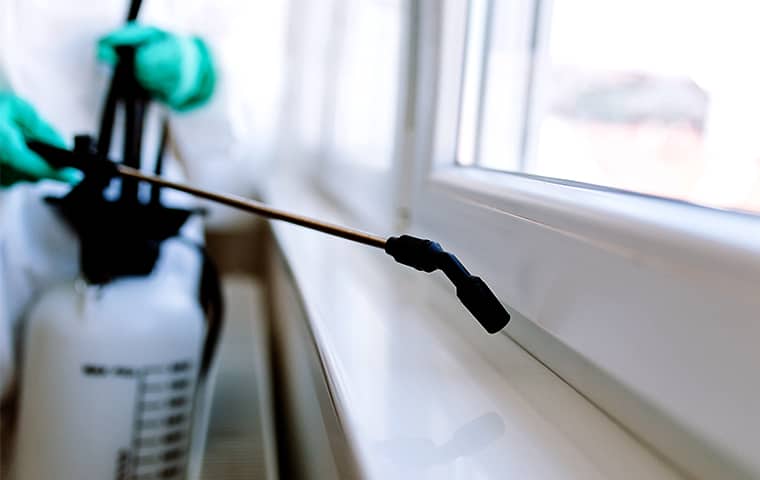How to Avoid Pest Issues in Rental Properties
Nobody wants to deal with a bug infestation in their rental properties. However, a landlord's duties also include managing pest treatment and preventing infestations. Ignoring a pest problem can make it worse and lead to more serious problems, such as health difficulties.
Setting up specific requirements for pest management in the lease is crucial for landlords. Most of the time, up until a renter rents out the property, the landlord is responsible for keeping it clean. After the lease is signed, it is the tenant's responsibility to keep the rental property clean and free of pests.
Unfortunately, pest issues can appear at inopportune times. Read on for information on typical pest problems, how to identify whether you have pest problems, and how to manage pests during winter.
Typical Pests in Rental Properties
Depending on where you reside, a variety of pests might attack your home. The following pests are most frequently observed in rental units in Sangamon County:

• Rats
• Mice
• Ants
• Bedbugs
• Fleas
• Cockroaches
• Spiders
Even if they might not always be visible during the day, that doesn't imply they aren't there. Mice and rats conceal themselves beneath big appliances, deep inside kitchen cupboards, and along interior walls. Ants can also be found nearby food sources or under equipment.
Similar locations, mainly in isolated, dark residential spaces, are where other insects and pests are also located. Let's now discuss some of the warning indicators of bug issues in your rental home.
What Signs Point to a Pest Problem?
It can occasionally be difficult to determine when you have an infestation because bugs can hide out without being frequently sighted. Nevertheless, it might be challenging to ignore the warning indications of serious pest issues. It's time to act if you see any of the following indications of a pest infestation:
• Pest Droppings – Urine traces and droppings from pests might be difficult to find. But this is among the simplest ways to figure out if you have a pest issue. Waste from bed bugs or roaches is probably present on furniture, in bedding, and along walls.
• Rodents frequently build nests out of whatever they can find. Rodent nests can be constructed using scraps of paper, leaves, and other materials. Conduct routine inspections of common nesting locations to prevent rodent infestations in your rental property.
• Property Damage—Most rodents enjoy chewing on things. Similar to this, different insects may eat through wiring, wood cupboards, and other materials, leaving behind harm. Tenants must report any inexplicable property damage as soon as they become aware of it.
Who is in charge of taking care of pest issues in rental properties?
You must address pest infestation-related damage as soon as it is discovered in your rental property. But who is to blame for pest issues, tenants or landlords?
There are times when the solution is not obvious. Numerous circumstances and housing considerations are involved. The majority of lease agreements specify that tenants are accountable for keeping the rental property clean to prevent bug infestations. Having said that, the landlord is required to give the tenant a rental house that is free of pests when they first move in.
The type of rental determines who is responsible for pest management if an infestation happens after the renter has moved in. If the home is a single-family rental, the tenants are responsible for engaging a pest exterminator.
However, the landlord is in charge of pest eradication if the property has two or more rental units. However, if the tenants were negligent and caused the pest issues, they may be liable for financial losses.
Why Do Rental Homes Need Pest Control?
Both tenants and landlords need to keep their rental properties in good condition. But having pests in your rental home can lead to a number of problems. Let's discuss the significance of pest control now that we've established who is in charge of it in specific circumstances.
• Tenant Health and Safety
• Damages to rental property
• Tenant grievances
• Significant Turnover
Tenant Health and Safety
Some pests, like rats, have the potential to infect the entire house with diseases, leading to respiratory problems among other problems. It could occasionally have an impact on whether your rental home is livable. Having saying that, any indications of a pest problem should be reported and addressed immediately.
Damages to Rental Property
Pest damage can happen quite easily. More than you may imagine, termites, rodents, roaches, and ants can ruin your rental. Wall holes, chewed wiring, and signs of nesting in your rental property are a few issues that can point to an infestation.
Tenant grievances
For owners of rental businesses, establishing a solid, favorable reputation is crucial. Everyone avoids being recognized as the landlord with a pest problem, though. Or even worse, a landlord who endangers the security of a renter. Tenants may begin to complain if they have bug issues since they want to live in a secure and healthy environment.

In the worst case, tenants might start posting unfavorable reviews online. Nowadays, technology is useful for the majority of tasks, including locating a reputable landlord. Unfortunately, if your rental homes have bad online reviews, it will be difficult to locate good tenants.
High Rates of Turnover
Nobody wants to rent a place where there are bug issues. That said, landlords must act quickly to address any issues that develop on the property. Neglecting pest problems will probably result in high turnover rates for landlords. Your rental business may begin to suffer if you are unable to attract tenants to live in your rental property.
How to Get Rid of Pests This Winter at Your Rental Property?
Winter is quickly arriving, so it's time to consider pest management during the chilly months. It's important to look for seasonal pests because different pests may be present at different times of the year.
Many bugs seek out warmth in rental homes in Sangamon County during the winter. During the winter months, you might observe mice, rats, spiders, and cockroaches searching for warmth. Landlords should take the following steps to combat pest issues:
• Regular Property Inspections – To make sure there are no pest infestations, landlords should arrange for regular inspections of rental properties.
• Treatments that prevent future infestations: Pest control professionals may identify problems before they arise.
• Seasonal upkeep: The kind of pests that infest rental properties can change with the time of year. Landlords should plan visits for pest control in accordance with seasonal maintenance needs.
• Establish Positive Relationships with Vendors- To understand about pest infestations and how to prevent them, landlords should establish positive relationships with vendors and workers.
• Act Quickly - As soon as there are indications of an infestation, landlords and tenants should collaborate to have the problem fixed right away. Each minute you wait for a pest problem to be resolved could cost you money.
Need Assistance Preventing Pest Damage to Your Rental Property?
The daily chores that come with owning one or more rental properties can feel never-ending. Nevertheless, no landlord likes to have to cope with a pest problem.
Fortunately, Wiese Properties Inc. provides a comprehensive approach Springfield and surrounding towns.
Our devoted team of experts is ready to help you every step of the way, whether you need assistance with tenant screening, maintenance concerns, or rent collection. If you require assistance with your rental property business, contact Wiese Properties Inc. for a free consultation.



